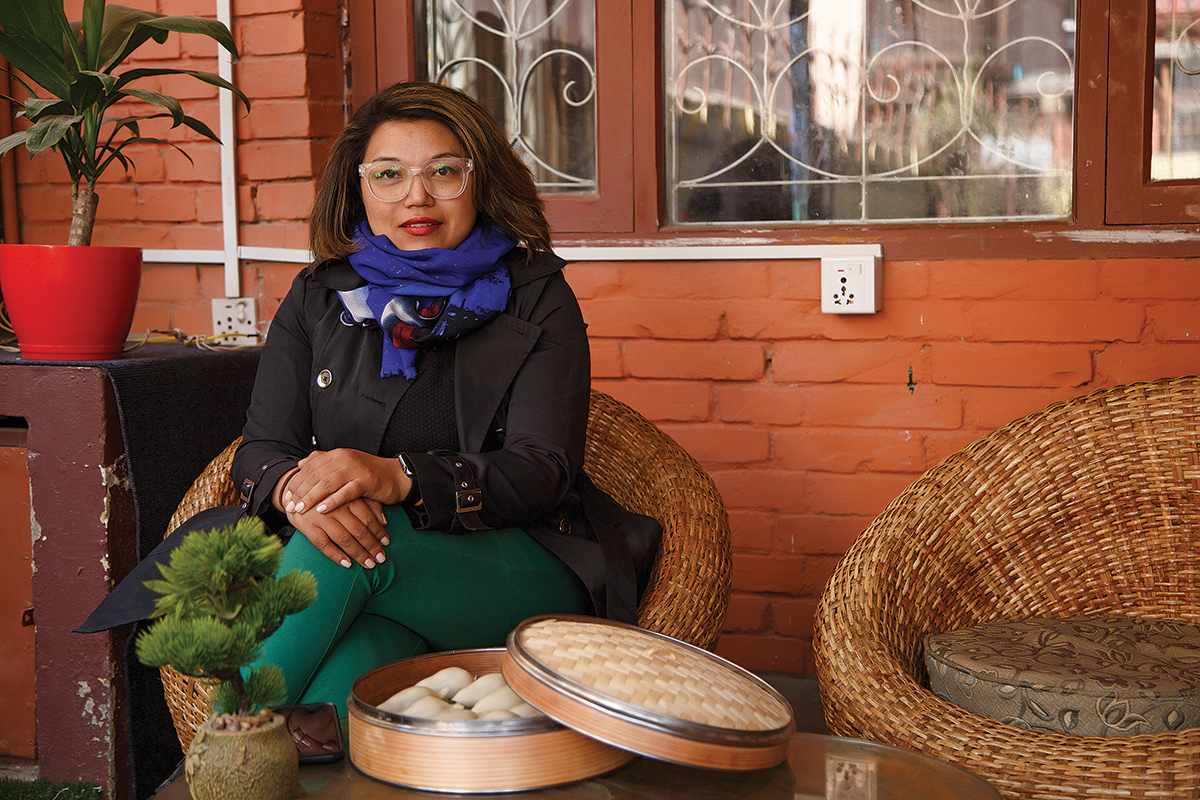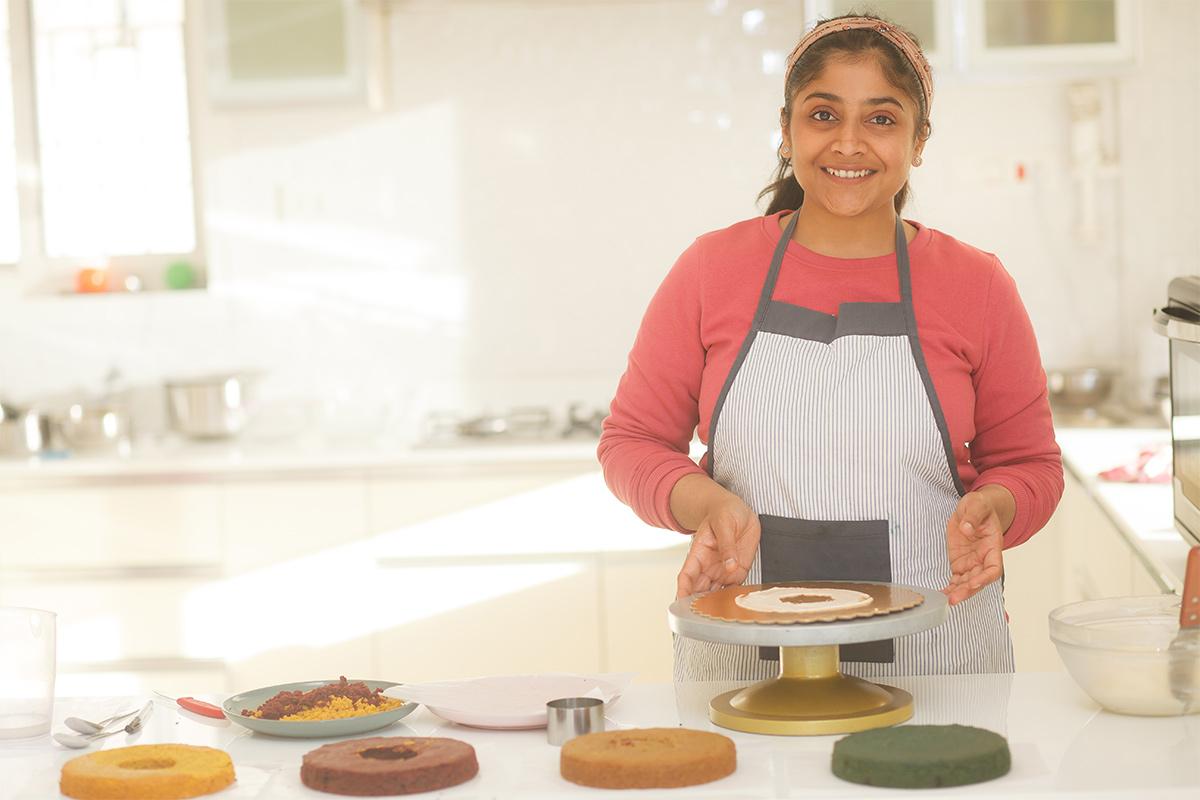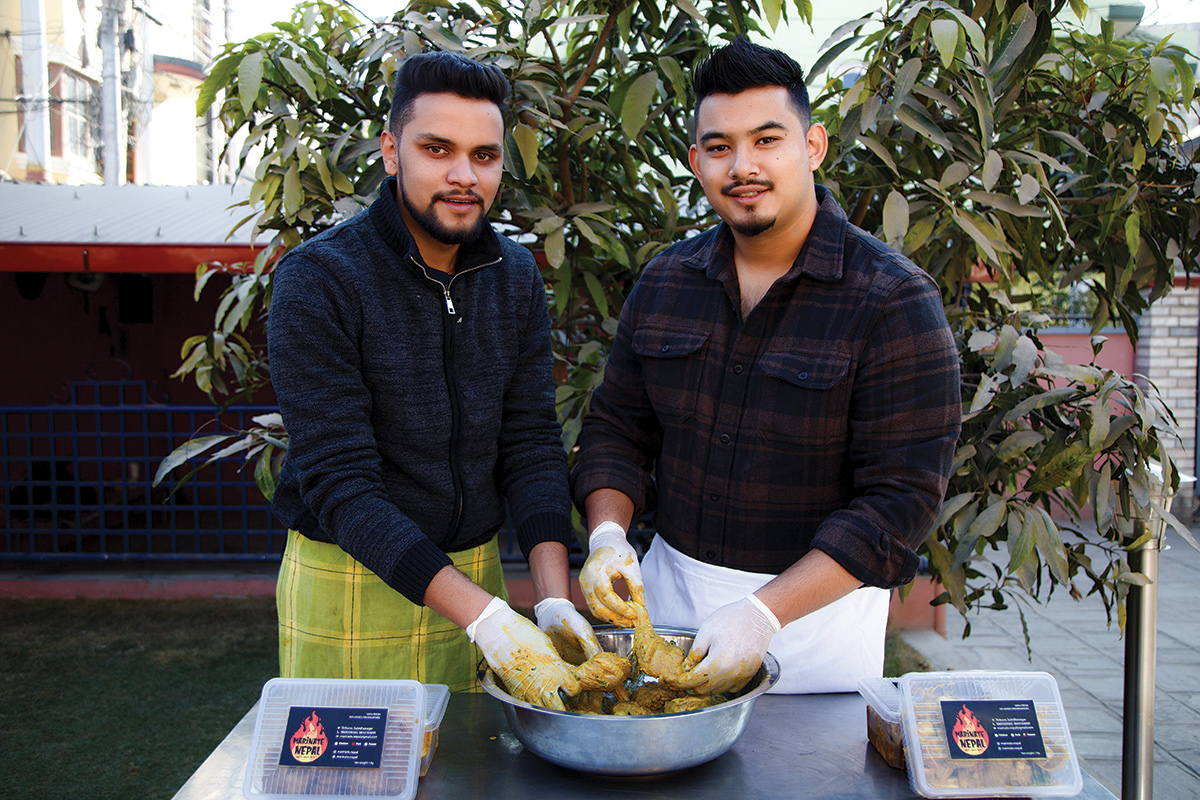
The Covid 19 showed a rise in the number of home based entrepreneurs and it looks like a trend that will continue to grow. Homepreneurs are often in business by choice or circumstance and represent a formidable number of small businesses in the country.
With economic uncertainty following the Corona virus, thousands of businesses closed down or downsized and many people had to suffer from company layoffs. Work has become increasingly hard to find and money is scarce for many. A lot of young people especially have chosen to start home based businesses using their expertise or that of a senior member in the family to make a living. Some homepreneurs are in it for the love of what they do and the freedom it allows them to work from home.
The rise of the homepreneur has been helped by the low over heads, social media technology for marketing and building customer relationship, and efficient delivery systems that allow their goods the mobility to reach customers on demand. The food business especially has phenomenal talent selling varieties of raw produce and cooked meals that are giving super markets, grocery stores and established restaurants tough competition.
In this edition, we debate the rise of the homepreneur, the benefits and the challenges. We feature some successful homepreneurs who have caught the attention of consumers, and we also talk to different professionals about their opinion on the rise of the homepreneur and whether it is a business model that can and will sustain.









Homepreneurs
BINISHA SHRESTHA THE SAAL LEAF

Tell us a little bit about yourself
A mom of two cute kids, a UX designer who loves to hike. After living in the US for almost a decade, I returned back to be with my family, to do something on my own and also to break-free from a “machine” life I had there. Happiness is a key core value for me so I am a hopeless optimist. I am fascinated by the world of behavioural science but I love business and strategy too, so I went on to study both. I always liked showing my love for people I care the most for, be it with any favour or be it with any gifts. I pay attention to things that matter the most to them. I also have a habit of bossing around at times. These five adjectives describe me the best: Creative-thinker, Energetic, Communicative, Analytical, Independent.When and how did The Saal Leaf come about?
I have always been a total foodie. Wherever I go, wherever I travel, the first thing I would look up will be the food there. I think there is no love more sincere than the love of food. Food is fuel, food is miraculous. Food makes us feel good, warm and loved, like being hugged from inside. After coming from America, I was numb for awhile, what to do, where to start and a couple of projects we delved in were not working out. One day, I have this good friend who is a total foodie too and a real home chef who has this knack for twisting and turning the sauces and trying out new recipes. I was having lunch at her place, the food was so good. I proposed that we should open an eatery. People will love it and you know what, she had that in mind for a long time. Quickly and very quickly we set up a date, we both were so passionate, despite being furloughed due to Covid, we didn’t stop and started right at home about five months ago. We are entirely women staffed, women-owned with deaf and mute women working for us.Tell us about your products? And what is the price line?
We have foods which makes us feel good, warm and loved, like being hugged from inside for all kinds of occasions, celebration and traditions. We cater for all kinds of foods be it momos, biryanis, newari Samay baji and recently we have added kung pau chicken which is our big hit. We also do birthday packages, baby shower packages, office parties with cakes and decorations. Recently we have also started a culture package, delivering yomaris for special occasions where a person dressed culturally will deliver yomaris, explaining the special significance of the food and the story behind them. Prices range anywhere between Rs. 1500 to 5000. Individual food order starts from as low as Rs. 115 to 575.I think there is no love more sincere than the love of food. Food is fuel, food is miraculous. Food makes us feel good, warm and loved, like being hugged from inside.
How do you market yourself?
Rewinding back to more than 15 years, I was into marketing for a long time and having studied user research, I knew what would pitch in with customers but we are a small startup and we don’t have a big budget for special advertising and promotion. All we did was network first with friends and family on social media, and word-of-mouth has played a big role with us. Nowadays it’s easier to market than it used to be a few years ago. Nowadays, there is a tool for everything and you no longer necessarily need design or coding skills to launch a quick idea on the side. But having said that no amount of paid media is going to turn bad creative into good content. So a big yes, blogging and social network is our thing.What are some of the key components of why your products are successful?
Being in the business for quite awhile now, what I know is food is an experience. Anyone can get any food from anywhere but it is the experience which counts. We have stories for each of our food and when people hear that, they love it. We basically go with a “don’t sell but help” attitude and that has clicked more than anything with our products. Just yesterday, we delivered a cultural package with yomaris, and this culturally dressed woman going to our client’s home celebrating her mother’s birthday in a traditional way and here she is watching that all the way from America! All of our personalised gift packages are popular where we always help families feel special and remembered. Another mention worthy thing is at the time of Covid, we helped many families who tested positive with our catering, whose families were living abroad and there was literally no one to cook for them. We have notes from teary-eyed customers appreciating the warm food at the time of need. As Zig Ziglar once said “You will get all you want in life if you help enough other people get what they want.” has worked for us.Are you considering eventually taking this business into a physical restaurant, or prefer to retain an online presence?
Frankly, we have been getting offers to franchise our business model but we are still taking baby-steps as both me and my partner are mothers to small kids and we have to look after them at the same time. So not any time soon but yes, expanding our online platform is in the cards.Did you know you would be successful?
We are still in the infant stage and not very successful but we have been able to carve a niche of a small group of people and that is enough for us. We are not here in the industry to obey the rules of the rat race. We have set our goals, objectives and trajectories based on what we desire, not what someone else wants for us. We choose to provide value in small doses and share what we know with our customers with the sole intention of helping them and giving them what they’re looking for and I knew that would click with people.What’s the best compliment you have received?
I always put up stories on my social media and say we deliver happiness and we love to give surprises. I personally deliver food packages to people and I have many, many stories to tell. I listen to people all the time and grasp the ambience of that place. Someday I plan to write them in an article. The recent best moment is when actress Manisha Koirala complimented our food when we catered to her shooting crew. But the best of the bestest would be when I heard from a couple living in isolation say, “At this moment, you are the true definition of an angel to us.” It wasn’t super delicious food we delivered, it was a normal warm dal bhat, but the situation they were in just made the moment super emotional and left me all teary-eyed.What do you enjoy about being a homepreneur?
The fact that I am home most of the time and kids are right upstairs is a feel-good factor. So the best thing about having an entrepreneurial job is that it lets you be who you truly are. You just enjoy what you are doing and you don’t have to dread to go to work.Are there any drawbacks?
Oh yes sometimes its freaking uncomfortable. The adrenaline rush of a sales call that was too big for you, the overwhelming emotion of winning a deal, the desperation after losing a contract; it’s like bungee-jumping. Entrepreneurship is not all “freedom, work from wherever you want to, and do what you love”. It’s a roller-coaster of self-discovery with lows far outside your comfort zone but highs far higher than you’ve ever experienced.Anything you would like to add...
You don’t need to have 10 years experience as a CEO and an MBA to start your own business, but you should have sufficient knowledge and experience to understand the basics! You know that being great at your craft is only half the equation and actually running the business is the other half. It is easy to set a goal — we do it all the time. Staying motivated to achieve those goals, well that’s a different story.ASTHA AGARWAL PHATTERLIFE

Tell us something about yourself
I am 27 years old. I have done my Bachelors degree in Hotel Management, and I mostly enjoy cooking, baking and traveling.When and how did Phatterlife come about?
I have been working with and around food since the very beginning. During my internship with The Taj Mahal Palace, Mumbai, I loved my experience in the kitchen. Went on to work with a wedding management company after that. I have developed recipes and menus while working as a restaurant consultant in my last job. Therefore, when I came back home during the lockdown, I thought of giving it a try. It started with me wanting to post pictures of the food that I loved cooking. As I was putting up pictures on Instagram, I got my first order and just to see whether others like my food as well, I said yes. This has been a journey that has evolved on its own.Tell us about your products and how you are priced?
As I enjoy baking, my menu is dessert based i.e., cupcakes, cookies, tarts, cheesecakes, cakes, etc. I want my customers to really enjoy the flavours that I have to offer which is why I only use ingredients used by 5 star+ bakers and haven’t kept the prices high at all, super reasonable. Basically trying to offer the best taste out here so that I can prove myself. I would love to create more things but due to the limited ingredients here I am creating the most I can.How do you market yourself?
Primarily Instagram and limited use of Facebook. I depend a lot on word of mouth and that has worked well for me till now. Have recently started setting up kiosks at events and handing out tasters.Online has helped me kick this off the ground so it’s going to stay forever. But I am in the food business and at the end of the day if I can see people buying or eating in front of me with a smile on their face, it would mean the world to me. But no strict timelines for a store, I have lots of things to explore before that.
Primary reasons why your products are successful…
I like to make what I like to eat and it has worked till date. Plus I take customer feedback very seriously and that has helped in identifying what I need to improve. Also I have consciously decided to expand my menu slowly. I do not want to have an extensive menu at the expense of quality.Physical store or keep it online?
Online has helped me kick this off the ground so it’s going to stay forever. But I am in the food business and at the end of the day if I can see people buying or eating in front of me with a smile on their face, it would mean the world to me. But no strict timelines for a store, I have lots of things to explore before that.Did you know you would be successful?
I knew I would be happy. That’s it.Best compliment
Each order for me is a compliment. I don’t seek anything more than that.What do you enjoy about being a homepreneur?
The fact that I am able to work within a comfortable space. Also that I can try and fail as many times before I am ready with the final product. Also, that my family is literally there to support me and provide feedback.Are there any drawbacks?
I don’t think being a homepreneur has any drawbacks as such. The fact that we are in such a situation that we can’t go out as much as we could and on top of that my work space is also my home sometimes gets to me. But there is a light at the end of the tunnel, so this will surely pass.Anything you’d like to add...
I hope people who read this start something of their own that they like. I’m sure if they put their heart to it, they’ll be happy and content.ASHISH SINGH & SUSHANT LAL KAKSHAPATI Marinate Nepal

Tell us a little bit about yourself
Sushant: Raised in a hotel and restaurant family business, I have always been passionate about this industry. Since early childhood I knew that I wanted to do something in this profession so after I completed my A-Levels I went to study International Hotel Management in Thailand. I got the chance to explore and discover many new things during my time there. After I finished my degree, I came back to Nepal and started researching new concepts and ideas which I had seen in Thailand. With Ashish I discovered that there was a huge rising BBQ trend in Nepal and we wanted to do something new, something which people always wanted to but had no option, so we came up with the idea of creating marinades. Having an international hotel management degree had really helped as I had knowledge about food and spices. From here we started our journey to provide people with pre-marinated BBQs. Ashish: I started my journey as a professional basketball player and coach. I came to the fact that sports alone is not enough to sustain in a place like Nepal. I was raised in a family full of businessmen and also my father being an inspiration to me, I always wished to do something simple but unique in Nepal. As I hold a BBA degree and with my friend Sushant holding a hotel management degree, we combined our ideas and came up with the venture which today is known as Marinate Nepal keeping in mind the rising barbecue trend among Nepali people.When and how did Marinate Nepal come about?
During Covid 19 lockdown, we were brainstorming about different business ideas which were simple yet very demanding. We wanted to do something new and which had never been done before. We thought of using both of our degrees to come up something new. We also noticed that the barbecue trend in Nepal is gradually growing and there were no suppliers of pre-marinated products so we came up with Marinate Nepal.Tell us about your products and the price line?
Mixed with more than 18 varieties of ingredients, Marinate Nepal vows to provide customers with the finest badge of marinated products, prepared with honesty and love. We provide four different types of BBQS right now which are chicken, pork, mutton and paneer. In chicken, we marinate four different cuts of chicken according to the customer’s need. We have chicken leg, boneless chicken, chicken wings and mixed chicken. We are planning to add new items and grow our menu very soon. Our price starts from Rs 750 and goes all the way to Rs 999.How do you market yourself?
Right now, we are focusing on social media marketing. We market our products on Instagram and Facebook. We market our business as the first business to provide people with pre-marinated BBQs. We are there so that it is convenient for people. Our slogan says, “Just Grill It, Cook It, or Fry It”.What are some of the key components of why your products are successful?
Each selective pre-marinated batch is made from scratch which means fresh meat, fresh vegetables, and local home-grounded spices made in a proper hygienic kitchen. Our product can be grilled or fried if one’s not doing a BBQ. If someone is having friends and families over, they can order from us and all they need to do is grill it or fry it. We all know that preparing food is the hardest part of that day. By ordering from us they can save time preparing food and can spend lovely time with their guests. We want to give our best to our customers and we want them to feel the value after they purchase our product.Are you considering eventually taking this business into a physical space or prefer to retain an online presence?
Right now, we want to focus on our online presence but we do have thoughts about opening a physical store. Maybe within a year or two we are planning to open Nepal’s first BBQ House where we smoke our meats for 12 hours. This has never been done before in Nepal and we want to introduce it to Nepali food culture.Mixed with more than 18 varieties of ingredients, Marinate Nepal vows to provide customers with the finest badge of marinated products, prepared with honesty and love. We provide four different types of BBQS right now which are chicken, pork, mutton and paneer.
Did you know you would be successful?
No, we did not know we would be successful. We started marinating for our friends and families first and we got a very positive response from them. Then people started ordering from us from our social media accounts. We got more positive response from them too and we knew that what we are doing is revolutionary and people are acknowledging it.What’s the best compliment you have received?
There was a German customer who had ordered from us. He told us that our product reminded him of a BBQ restaurant in his hometown. We both were happy to get such response from our foreign customer.What do you enjoy about being a homepreneur?
There’s no place like home. Being a homepreneur, we have flexibility and freedom and we can be our own bosses. Working from home is fun as we don’t have any pressure from the outside world. For a startup business like ours, we don’t have to worry about rent, electricity bills and other costs. This means profitability is better due to low overhead costs. Thanks to our supportive families, we have been able to work from home and give our customers the best.Are there any drawbacks?
Summer is going to be challenging as people will do less BBQs compared to winter. But as we have said earlier, our product tag line is “cook it, grill it, or fry it”.Professionals' Opinions
SUMAN SHAKYA Consultant, Trainer, Entrepreneur & Founder, Tangent Waves

How do you view the increase in homepreneurs especially after the pandemic?
I am excited by the increase in homepreneurs for three reasons: 1.The trend shows that as Nepalis we inherently have business sense 2. We are becoming more assertive and not just relying on jobs 3. They will contribute to the growth of the economy, the only way to accelerate the development of NepalWhat do you see as the challenges and the plus points of homepreneurs?
Lower overheads are obviously the major plus point that usually results in more profits. Lower taxes too by booking rent, utilities, renovation and maintenance to the company. Additionally, homepreneurs can spend more time on their business with very little commute time. As much as one can imagine spending more time on the business, there is always the challenge to manage distractions at home. Children and home chores take the attention away. Increasingly, working alone for a longer period without socialising does have its downside. Networking is not easy online and getting clients without active marketing in-person may hurt the business in the long run.Do you view them as a threat to regular enterprises especially in the food business?
I feel the market will grow overall which is good for everyone. The situation can be drastically different post pandemic when normal life will resume to hurt small businesses, especially food. Opening a home business is easy, keeping it open will require the acumen and knowledge of running a business. If these skills are not acquired and without mentoring and coaching, it can tip the scales in favour of regular enterprises.Do you think this trend of working or business from home will stay?
Some business by their very nature will succeed by being home based. Majority will have to move out. There will be an increase in hybrid structures wherein there could be many parts of the business that can be managed from home / online. In USA, 52% of all small businesses are home-based businesses (US-SBA); similar reflection will be bound to be seen in Nepal as well.Any homepreneurs you have noted and would like to recommend?
I have been enthralled by Srijana Pradhan and Gautam Gurung of Organic Online. They are selling their homemade products and a combination of others through Facebook and have grown impressively in a short time.SHIVAM AGRAWAL Founder & CEO, MIC for Youths

How do you view the increase in homepreneurs especially after the pandemic?
The Corona virus pandemic has affected lives not only in terms of physical health but also made some businesses vanish with no immediate hope. It took a month for people to learn that we should and must transform the work module and schedules to the fastest medium to reach out to our customers and this was possible via the internet. We Nepalis had not really thought that we would be doing this but we did it. We proved our abilities to revive and sustain by building new habits, creating new modules, adapting to it and learning to communicate and coordinate with world.What do you see as the challenges and the plus points of homepreneurs?
This is it, a new normal virtual world. Homepreneurs are the new ecosystem where all of us begin to work and survive virtually from our homes. We have been taught since our childhood about what is good and what is bad for our health, most of us ignored it. This pandemic we managed to crack the code of our learning. We have learnt to manage to maintain our health, change our food habits to eating healthy home cooked foods, give time to family, be more responsible about our role in the community, etc. Working from home comes with its set of challenges too such as coordination with colleagues, time management. The office setup offers more discipline, curiosity, environment, physical interaction which is what we miss when working from home and could result in slower output than intended.Do you view them as a threat to regular enterprises especially in the food business?
One of the businesses that was highly affected by this pandemic was the food businesses with health and hygiene concerns slowing down the sales. But most food enterprises have transformed themselves, won the trust of their consumers and some have even grown in this pandemic.Do you think this trend of working or business from home will stay?
The trend of homepreneurs has set a new benchmark of working module which is good. New and creative businesses have been initiated which is a positive sign for the economy too.NOOR DHOJ JOSHI Managing Director, J&T Associates and Dropmandu, Founder, Opasa Services

How do you view the increase in homepreneurs especially after the pandemic?
Under these unprecedented times, the fact that the entire world has had to make adjustments in the way they function, we have seen many homeprenuers mushroom. With people mostly stranded at home due to the pandemic, loss of jobs and uncertainly, a lot of people have become creative and started their own little something from the comfort of their homes. This pandemic has given people the opportunity to emerge as entrepreneurs and do something out of their comfort zone, something they would not do in normal times which is probably a positive outcome of this pandemic. This also has led to other support functions to mushroom for eg. delivery companies, digital marketing services, etc.What do you see as the challenges and the plus points of homepreneurs?
Every business has its challenges and as time changes and normalisation takes place, I think the major challenge homeprenuers will face is competition. There are businesses that have been in the industry and set their goodwill so those businesses will likely spring right back. People are waiting to get back to the normal they were used to so these new home based businesses will need to make sure they control their quality and think out of the box to keep going. With the pandemic, people have experienced the ease of online shopping and have learnt new ways to shop. This could turn to be a positive aspect for such homepreneurs if they provide a faster, richer and more inclusive customer experience so people continue to retain their services. This has set a trend and ease of online shopping which will probably continue.Do you view them as a threat to regular enterprises especially in the food business?
Homepreneurs are small scale businesses who are trying to make a living in these difficult times. I do not think they would be a threat to established regular enterprises in the food industry. A lot of home based businesses work with word of mouth and they would not have the reach like established enterprises. Home based businesses would likely be popular and remain within friends and family if they provide the quality and kind of services people are looking for.Do you think this trend of working or business from home will stay?
This is the new normal so this trend of working from home will probably stay. A lot of businesses are now completely changing gears for their employees to work from home as recent studies show higher productivity of employees working from home. As for home based businesses, some may stay while other may slowly fade away once the economy kicks in. People may chose to go back to work for regular income. Depending on the products and services homepreneurs are now providing, they may be able to sustain and hopefully will be able to reach the greater population. Hopefully these new homepreneurs will be able to keep their businesses alive. We need new innovation and ideas to bump up our economy and I am sure people will continue to come up with very creative business ideasAny homepreneurs you have noted and would like to recommend?
I can think of few homepreneurs that have being doing well since this pandemic Masknepal- #maskup Solosnepal- #madeinnepal #solosnepal Harrington- #harrington #narrateyourstory Cross Stitch- #supportlocalbusiness #crossstitchnepal The Pastel Florist- #supportlocalDR RITA SINGH Periodontist and Implantologist, Oracare Dental Clinic & President of Nepalese Society of Periodontology and Oral Implantology

How do you view the increase in homepreneurs especially after the pandemic?
People could find their strengths and interests during the free time that they had during the pandemic. They could work up on skills, brush up on ideas and share with people on social media which has played a huge role in sharing ideas in a very inexpensive way. It gave easy access to reach their target audience. In addition, it’s all about agility of how people adapt to the new circumstances and how physical businesses don’t work or are not applicable in recent times.What do you see as the challenges and the plus points of homepreneurs?
It’s a very new concept for us. Those who lack aspects like adapting to change or accepting change as a whole might miss out on this huge opportunity. Branding or visibility might be difficult especially for technology challenged people. Plus points are less overheads specially for small businesses which can be an advantage. Being able to perfect the work family balance is something, new many parents have discovered during the pandemic.Do you view them as a threat to regular enterprises especially in the food business?
I don’t think it is a threat for the regular businesses in the long run like restaurants. Apart from good food, there are many other factors that allure the customers, e.g. ambience, hospitality, feeling of homeyness, feeling of being recognised by the staff as you walk through the door.Do you think this trend of working or business from home will stay?
Yes, trend of working from home will stay as it saves on time and cost in many instances. Being able to digitally connect to people through platforms like zoom has brought about the paradigm shift.Any homepreneurs you have noted and would like to recommend?
Kabita Thapa, at the age of 62, has started “Ma ko Khadya Udhyog” during the pandemic. She converted her Montessori preschool to home kitchen with the help of her staff. Because of this step, she was able to support them and also give them bonus during the festivals. I am really impressed by her passion and zeal to adapt to the new normal, and willingness to brand her business through the social media. She has proved that age is definitely not a barrier to entrepreneurship. I highly recommend her sel roti, cutlets and marinated fatty fish and wide array of snacks.SUMAN SHRESTHA Director of Sales & Marketing, Hyatt Regency Kathmandu

How do you view the increase in homepreneurs especially after the pandemic?
I think it is a mix of financial reward and engagement whereby many started to explore revisiting their hobbies when they realised there could be some financial rewards as well, and it continued.What do you see as the challenges and the plus points of homepreneurs?
Challenges: Limited market, cost, promotion options, standardisation. Benefits: Novelty product and services, genuine and quality products.Do you view them as a threat to regular enterprises esp in the food business?
Yes, especially for small enterprises like pastry and bakery shops, etc.Do you think this trend of working or business from home will stay?
Yes for some segments and those that have a business model being adapted for continuityAny homepreneurs you have noted and would like to recommend?
Have an associate working in Hyatt who has pursued her passion in cooking to start her small business when free. Her name is Susmita Karanjit and she had started an enterprise called Wholesome Munchies (https://www.facebook.com/wholesomemunchies/). Her contact details: 9802027667; email: [email protected]) A friend’s wife Anita Gurung has pursued her love for baking. Details as per her social media handle are: https://www.facebook.com/rainbowbakes.np; https://www.instagram.com/rainbowbakes.np/SHAGUNI SINGH SAKYA Executive Director, Kathmandu Guest House

How do you view the increase in homepreneurs especially after the pandemic?
Homepreneurs is not a new concept. We have always had grannies and moms with their “made at home” enterprises, or even village women who have been making a livelihood for ages selling milk, gheu, vegetables and other food products. Now with social media marketing, it’s become easier for all to become home entrepreneurs and shifted more to the cityscape. It’s an excellent work opportunity to balance work and home especially for those who need to give extra time to their familiesWhat do you see as the challenges and the plus points of homepreneurs?
If the enterprise becomes too big to handle from home, then the next step of investments would pose to be challenging for some. The positive aspect is even if it becomes big, then home entrepreneurs can manage within their limitation. Their choice between quality vs quantity is easier to make unlike being out in the open retail market and being in the thick of hard core competition with more overhead costs.Do you view them as a threat to regular enterprises especially in the food business?
No enterprise is a threat in a free market economy. Its choice and competition for all.Do you think this trend of working or business from home will stay?
Yes it should stay and flourish. For women especially it’s a boon to work from home and manage professional and personal matters. Maybe we see more happier and balanced families in the coming days with more women working and thriving from homeAny homepreneurs you have noted and would like to recommend?
A lot of good bakeries around!
Published Date: January 14, 2021, 12:00 am
Post Comment
E-Magazine
RELATED Opinion





